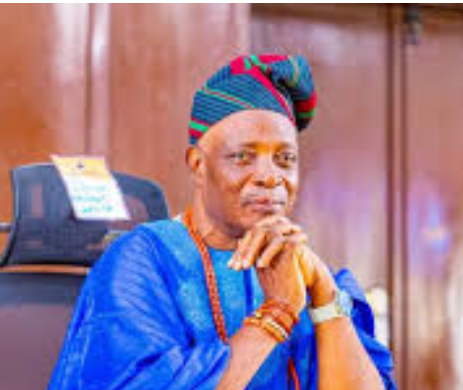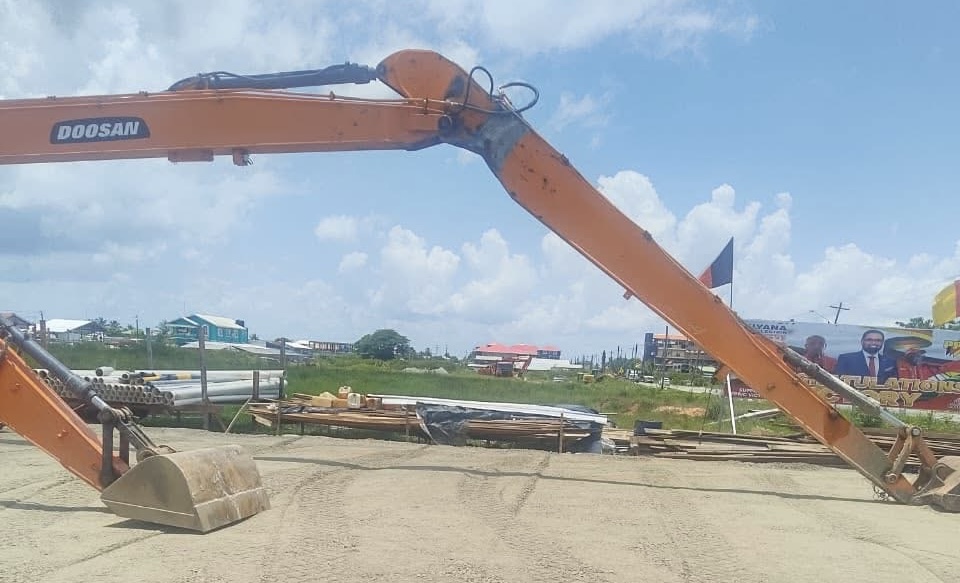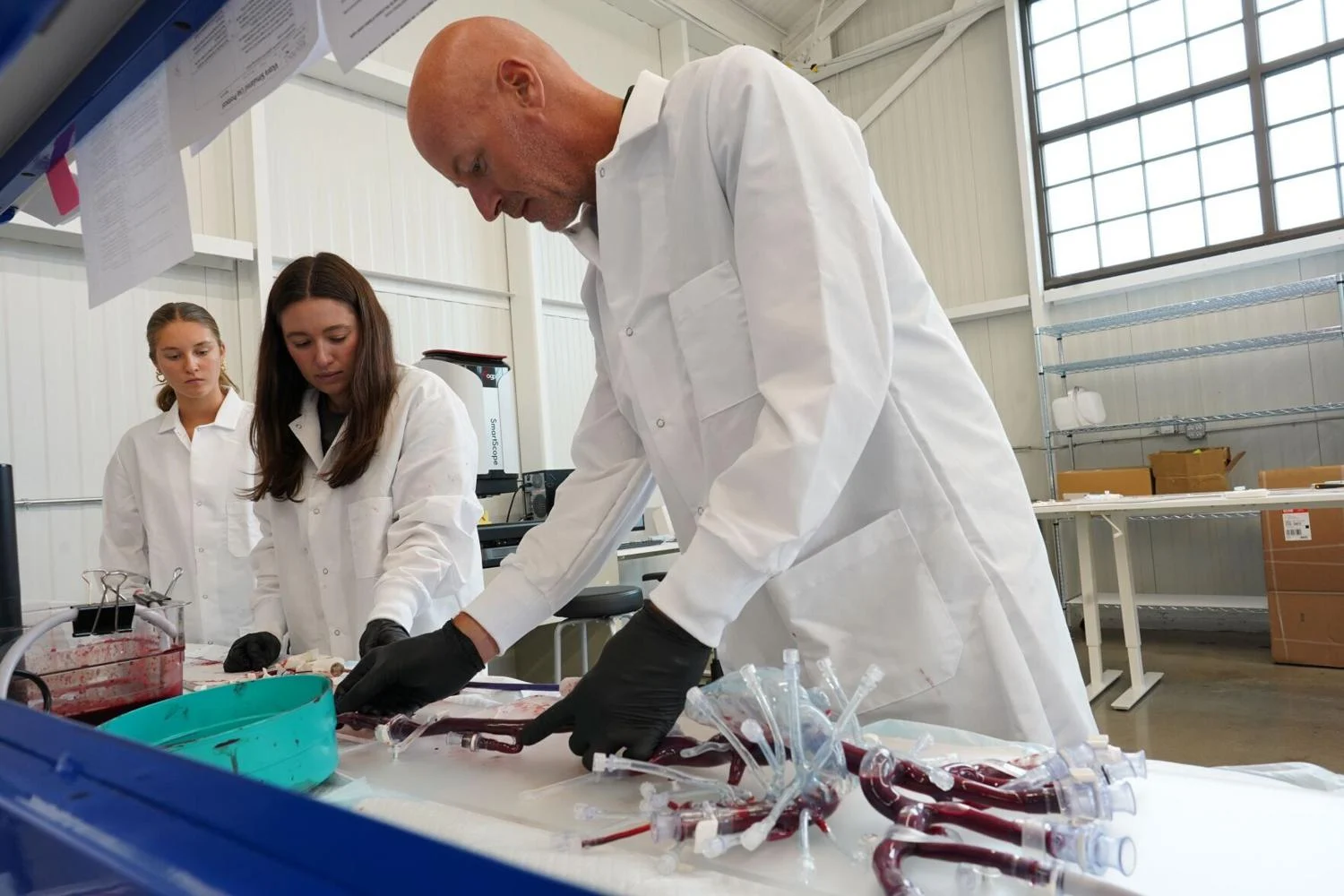By Emmanuel Oladesu, Deputy Editor,The Nation
Copyright thenationonlineng

A new era begins in the ancient city of Ibadan as Third Republic Senator and former Governor of Oyo State, Oba Rashidi Adewolu Ladoja becomes the Olubadan on Friday. Deputy Editor EMMANUEL OLADESU writes on the eminent politician’s long walk to the prestigeous throne.
It is as if Ibadan, capital of Oyo State and political headquarter of Southwest geo-political zone, has not had a monarch before.
The ancient city is aglow with festivities. Prominent Nigerians from all works of life have been thronging the Bodija residence of the man of the moment, Oba Rashidi Adewolu Ladoja, who becomes the 44th Olubadan of Ibadan on Friday, to congratulate him.
For the Third Republic senator and former governor of Oyo State, it is the fulfilment of destiny and the actualisation of a prime ambition nursed 33 years ago when he began the long, tortuous and resilient journey to royalty.
Oba Ladoja, Otun Olubadan, is succeeding the late Oba Owolabi Olakulehin, retired Army Major and former council chairman, who served as a member of the House of Representatives when Oba Ladoja was a senator. He passed on July 7 at 90.
There is no ruling house in Ibadan unlike other Yoruba towns with crowns from Ile-Ife, the cradle of the race. The stool cannot be appropriated by a single family. The pattern of succession is unique. Historically, the Ibadan chieftaincy ladder is a two-line rotational system, either the civil line (Egbe Agba) or the military line (Balogun), leading to the Olubadan. The ascension to the throne is predictable, orderly and peaceful. Every male child in Ibadan is a potential Olubadan if he becomes Mogaji or family head. Succession to the throne is free from acrimony, rancour, litigation, and usurpation. It is based on seniority and merit, not hereditary lineage, and the long, hierarchical climb helps the chiefs to gain deep understanding of Ibadan culture and governance before becoming king. But the title of Mogaji is hereditary as only family members could aspire to be family head. So prominent was the Mogaji status that a Timi of Ede even aspired to become one, tracing his root to a clan in Ibadan.
Unique hierarchical ladder:
The time-tested tradition of selection has endured for almost two centuries. But the Oyo State Government, in a white paper on the Review of the Existing Olubadan of Ibadanland Chieftaincy Declaration, published in a Gazette in August 2017, reduced the length of the ladder to 11 steps on the Otun Olubadan (civilian) line and 12 steps on the Balogun (military) line.
The promotion in the line of Otun Olubadan follows this pattern: Jagun – Ajia – Bada – Aare Onibon – Gbonnka – Aare-Egbe Omo – Oota – Lagunna – Are-Ago – Ayingun – Asaju – Ikolaba – Aare-Alasa – Agba-Akin – Ekefa – Maye – Abese – Ekaarun Olubadan – Ekerin Olubadan – Ashipa Olubadan – Osi Olubadan – Otun Olubadan – Olubadan.
Read Also: Ladoja’s coronation as 44th Olubadan begins with interfaith prayers
For the Balogun line, the steps follow this pattern: Jagun – Ajia – Bada – Aare Onibon – Gbonnka – Aare-Egbe Omo – Oota – Lagunna – Are-Ago – Ayingun – Asaju – Ikolaba – Aare-Alasa – Agba-Akin – Ekefa – Maye – Abese – Ekaarun Balogun – Ekerin Balogun – Ashipa Balogun – Osi Balogun – Otun Balogun – Balogun – Olubadan.
In the days of war, promotions were based on the display of valour or gallantry on the battle field. It was either a chief won the war or perished, lost his title or forfeited promotion. In extreme cases, he could be openly reprimanded, and he may even be advised to quit public life altogether. Thus, not all those who started the journey were lucky to cross the 22 steps which may take between 30 and 45 years. Thus, it was painful to their generations that warriors Ajayi Ogboriefon, Akintola, and Babalola; and Adebisi Idikan, Salami Agbaje, Ayorinde and Omowaye Kuye could not make it to the throne.
It is most unlikely that an Ibadan chief would mount the throne before the age of 70.
For a chief aspiring to the prestigeous stool, patience is the watchword. The 42nd Olubadan, Oba Dr. Lekan Balogun, Alli Okunmade, II, became Mogaji of Ali-Iwo family in Ibadan North East Local Government in 1986. He became Olubadan in 2022, 36 years after. The 41st Olubadan, Oba Saliu Adetunji, Aje Ogungunniso I, became Mogaji in 1976. He became the paramount ruler in 2016, 40 years after. He died in January 2022.
The 40th monarch, Oba Samuel Odulana Odugade I, came to the throne 35 years after he was installed Mogaji. He became Olubadan on August 17, 2007, at 93. His reigned for nine years.
The 39th Olubadan, Oba Yinusa Ogundipe Arapasowu I, born in 1912, was crowned at 79 on May 7, 1999 after waiting for 39 years. It took Oba Emmanuel Adeyemo, Operinde I, 41 years. He became the Mogaji of his family at Isale Ijebu in 1953. On January 14, 1994, when he was crowned. He reigned for five years.
The 43rd Olubadan, Oba Olakulehin became Mogaji in 1983, and 41 years later, he ascended the throne.
Ladoja, who will be installed as 44th Olubadan on Friday, September 26, 2025, has been on the queue for 33 years, having been installed Mogaji in 1992 and became Jagun Olubadan in 1993.
A turning point:
The title, Olubadan, came into existence in 1936 when Oba Abbas Okunola Aleshinloye adopted it. Warlike heads of Ibadan in the days of yore opted for the Oyo superior titles of Basorun and Aare Ona Kankanfo, or Balogun, instead of Baale, which was only meant for community heads without appetite for wars. Examples were Oyesile Olugbode, Balogun Ibikunle, Basorun Oluyole and Ogunmola, and Aare Latosa Asubiaro.
As from 1930s, the high chief, Salami Agbaje, wealthy trader and a member of the Nigerian Legislative Council, who represented Oyo Province, began the agitation for the elevation of the stool. He persuaded Alaafin to give his consent. It was very important because the Alaafin retained traditional control over Ibadan up to 1930s. So powerful was Alaafin Siyanbola Ladigbolu that he even deposed Baale Shitu, son of Aare Latosa. Agbaje also tried to influence the colonial masters by directing attention to the socio-economic development of the town.
Ladoja: scholar, engineer, businessman
Oba Ladoja is becoming the monarch of the largest cities in Nigeria and Africa at 81. He began the journey to the top from the bottom of the hierarchical ladder with optimism. In 1992, when he was installed as Mogaji of the Ladoja family of Arusa Compound in Isale Osi, Ibadan, he was 48 years. A year later, he was promoted to Jagun Olubadan during the reign of the charismatic and lively monarch, Oba Oloyede Asanike.
His father, Aruna Ladoja, was a trader, community leader and local politician, who defeated the late Chief Lamidi Adedibu during the councillorship election in the 1950s. Originally, his forefathers traced their roots to Iseyin, just as the Alayandes traced their roots to Oyo and the late Oba Ali Iwo and Oba Lekan Balogun traced their to Iwo.
Born on September 25, 1944, in Gambari, a rural village near Ogbomoso, he has maintained an attachment to that fundamental rustic nature, despite his high attainments in the society. He is a man of culture, and he is cultured.
He survived the hardship of growing up in the rural area where there was no modern health facilities. Child mortality rate was high due to ignorance on the part of illiterate parents who labelled the victims as ‘abiku’ and attributed the tragedy to witches and wizards.
His elder brother, who was named Rashidi, died a day after the naming ceremony. Looking back, he recalled that the environment was not habitable. “When I was growing up, I got to know why so many kids died in those days. It was not because there were witches in their families. The window was tiny and they would still be cooking with firewood in the same room. So, you can imagine the carbon-monoxide that was coming in and carbon-dioxide that was going out. If a child had fever at that time and your body was hot, they would put more cold blankets on you,” he said.
It was in the days of communal living when children ate anywhere and older neighbours could also serve as guardians.
Oba Ladoja reminisced: “As a little child, I had so many names. Adewolu was one. Aderemi was one. Ademola was also one. Okunlola was one as well. But I decided to choose Adewolu. Why?
“As I was growing up, it was during the reign of Oba Adesoji Aderemi, the Ooni of Ife. It was also during the reign of Oba Ademola, the Alake of Egbaland. I said why should I be bearing the same name with these big people? I said I should be bearing Adewolu. If I had chosen Aderemi, people would think I am bearing the name because of Ooni and Ademola because of Alake. So, I stuck to my Adewolu. I wanted to be Adewolu because it was not a common name that time.”
Oba Ladoja also recalled that he was not allowed to start schooling early enough because of his stature. “When I was asked to raise my hand over my head to touch the ear on the other side of my head,, my hand couldn’t reach the ear. So, the school did not take me.
“At that time, I would have been more than six years old. But based on my stature and the fact that my nutrition was not what it was supposed to be, schools thought I was below school age,” he said.
Oba Ladoja attended Ibadan City Council Primary School, Ibadan. Despite his brilliance, he nearly missed going to secondary school. In fact, he dropped out of Ibadan Boys School, Ibadan, in Form Four. The school fees -19 pounds and 10 shillings for boarders and nine pounds and five shillings for day students – were very expensive.
He was back a year later, shinning like a star in the school leaving cerificate examinations in 1963. “My father had been able to secure an employment for me. He made an agreement with the school that he would be sending five pounds poster order every month. In those days, there were poster orders. So, that was how he was able to pay the school fees for Forms Four and Five,” he said.
At the Olivet Baptist High School, Oyo, he came first in the entrance examinaron for the Higher School Certificate programme in 1964.
After leaving in 1965, he secured two scholarships. He attended University of Liège, Belgium, from 1966-1972, where he earned a degree in Chemical Engineering. He turned down his admission into the Ahmadu Bello University, Zaria, for Mechanical Engineering, and the University of Lagos, Akoka, for Electrical Engineering.
Unlike today, when many graduates are roaming the streets in search of elusive jobs, the past generation was fortunate. Ladoja returned to Nigeria and worked with Total Nigeria for 13 years, rising to prominent positions before venturing into private business in 1985. His business interests include shipping, manufacturing, banking, agriculture, and transportation.
His politics, battles:
Politics is in his blood. Since he put his hand on the plough, he has not looked back. A chieftain of the defunct Social Democratic Party (SDP), he was elected into the Senate in the aborted Third Republic. In that ill-fated dispensation, the military government of President Ibrahim Babangida, who midwifed the dubious transition programme that was truncated, had banned the old and experienced politicians to allow the new breed to experiment.
Ladoja’s senatorial career ended abruptly after the late Head of State, Gen. Sani Abacha, sacked the legitimate authorities under the diarchy arrangement. Like other senators – Bola Tinubu, now president of Nigeria, Abu Ibrahim, Polycarp Nwite and Ameh Ebute – he resisted. He joined the National Democratic Coalition (NADECO) in fighting for the actualisation of historic June 12, 1993 presidential poll won by the late Chief Moshood Abiola on the platform of the SDP. He went on exile to avoid Abacha’s killing squard.
But Ladoja later bounced back as governor of Oyo State in 2003. In 2006, he ran into turbulence. His impeachment by the House of Assembly by instigated by his estranged godfather, the late Chief Lamidi Adedibu, strongman of Ibadan politics.
A commentator, Adebisi Obafemi, who captured the drama, stated: “Ladoja fell out of grace with Lamidi Adedibu, his erstwhile political godfather, over the non-payment of “gratuity,” using taxpayer money. When coercion and thuggery failed to convince Ladoja to pay the chief from government money, Adedibu through his loyal 18 Oyo State law makers decided to employ ancient mathematics, using Richard Akinjide’s formula, to impeach the sitting Governor.
“In Adedibu’s mathematic textbook, two-third of thirty-two (32) is eighteen (18). The law requires two-third of the thirty-two Oyo-State lawmakers to ratify the impeachment. To fit a square peg into a round hole, 14 of the thirty-two-law makers were suspended, leaving eighteen Adedibu’s loyalist to carry out the dirty work.”
For 11 months, Ladoja’s deputy, Adebayo Alao-Akala, occupied the seat as an impostor until he was reinstated by the Supreme Court. But he failed to secure the second term ticket, which was handed to Alao-Akala during the Peoples Democratic Party (PDP) zonal rally in Akure, capital of Ondo State. Ladoja was present there.
As governor, he was effective, despite the distractions. He fought the infrastructure battle in Ibadan and other parts of the state. He was bold, brave and courageous despite the political adversity. After he was denied the PDP ticket, he defected to Accord Party and some of his supporters won elections into the House of Assembly.
As he advanced in years, Ladoja gazed at the throne and voiced his ambition. He said his last and most important wish in life is to serve as Olubadan. He had given his support for all his predecessors. In particular, he earned the admiration of Oba Adetunji, who publicly prayed for him, saying:”You will one day sit on this throne.”
The bond was partly due to the support he gave to Oba Adetunji, who had opposed the granting of beaded crowns to the Ibadan high chiefs (members of Olubadan-in-Council) and coronets to baales by the stage government. The move brought Ladoja in collision with the former governor, the late Senator Abiola Ajimobi, and his successor, Governor Seyi Makinde.
Controversy over beaded crowns:
Thus, Ladoja’s main battle in recent times was against tinkering with the 1957 Olubadan Chieftaincy Declaration in 2017. He was the only high chief who rejected the crown, derisively described as carton crown by Oba Adetunji. The Otun-Olubadan won the court case against the installation of many kings in Ibadan in one fell swoop. In January 2018, Justice Olajumoke Aiki of the Oyo State High Court declared the amendment of the 1957 Olubadan Chieftaincy Declaration as illegal, null and void. The state government appealed the judgment.
In the opinion of Ladoja, the Olubadan should as the paramount ruler should give crowns to his chiefs, and not the government.
However, the rift was eventually settled. Although Ladoja did not also accept the crown in 2023, he eventually accepted it during the reign of Oba Olakulehin.
Public expectations:
Much is expected of Olubadan Ladoja as he actualises his life ambition. He is expected to do more for the city more than his predecessors. He is the first former governor to become Olubadan. He is expected to work with the umbrella township association, the Central Council of Ibadan indigenes. The monarch will inherit the agitation for the creation of Ibadan State out of Oyo State.
He should learn from the lives of his illustrious predecessors, emulate their patriotic virtues and protest the interest of the vast city.
That was how those before him lived to expectation.
As the father of all Ibadan, it is now tine for the king to fully retire from politics.
Ibadan: from Lagelu to Ladoja:
The origin of Ibadanland is known. It is not a subject of dispute. It was the camp of gallant men of yore. Many of them were assembled to fight war on behalf of the Alaafin of Oyo in the old Oyo Empire.
Over time, it metamorphosed into a town; highly organised, meticulously administered, feared and respected by the entire Yoruba. Those who formed Ibadan came from Oyo towns and villages. Others from the nooks and crannies of the race joined them. The occupation of the early settlers was war, although they also practiced other trades, including farming, animal husbandry, weaving, and slave trading.
A true Ibadan indigene would trace his roots to the family compound. This is not enough. Each family also has a farmland outside the town.
For any mogaji to become Olubadan, he must be a long distance runner; full of patience, endurance and hope. He must also be a man of the community, a man of integrity and honour.
As from 1930s, the colonial Governor-General, David Cameron, tried to persuade Yoruba communities to install educated princes as obas. It was difficult at Ibadan because of the its exceptional system of ascension.
However, the first educated Olubadan was Oba Isaac Babalola Akinyele, whose brother, Bishop Alexander Akinyele, founded the Ibadan Grammar School. He was president of Christ Apostolic Church (CAC); a former councillor in Ibadan Native Authority and minister without portfolio in the Akintola Government in the defunct Western Region. During the Awolowo/Akintola crisis, he was neutral. He stood on the side of peace. Although he initially declined to become Olubadan, citing the fetish traditions, the elite, led by Ven. Emmanuel Alayande who were rooting for an educated oba, mounted pressure on him to rescind his decision. The lawyer, Ayo Rosiji, drove Oba Akinyele to the Oja Oba where he was unveiled as monarch.
Indeed, most olubadans were politicians, who have served at the local government, state and national levels. Oba Emmanuel Adeyemo was a Commissioner during the emergency period in the Western Region. Oba Akinbiyi was a regional legislator. Oba Samuel Odulana was a House of Representatives member and parliamentary secretary to Prime Minister Abubakar Tafawa Balewa. Oba Olakulehin was a local government chairman and federal legislator.
A very charismatic Olubadan was Oba Yesufu Oloyede Asanike. Few gave him a chance, but he reigned for 11 years, becoming one of the longest reigning Ibadan monarchs in modern times, next to Alesinloye who reigned for 16 years.



